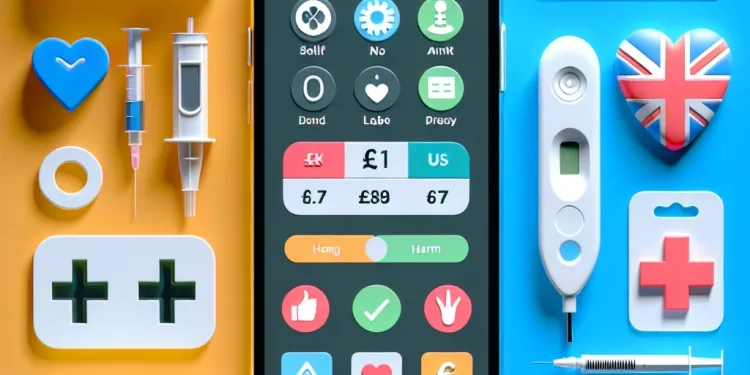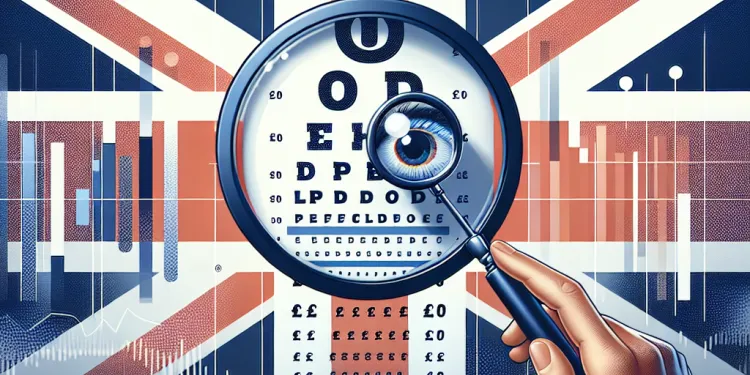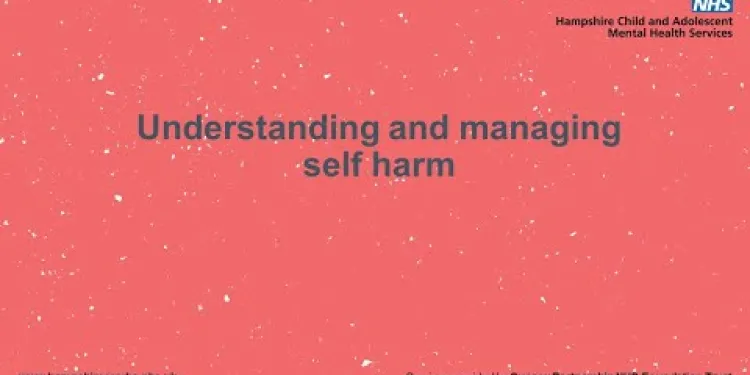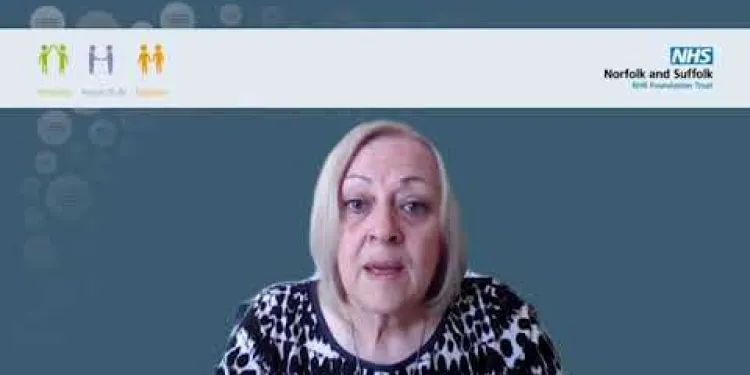
Find Help
More Items From Ergsy search
-

Is it possible for self-tests to cause harm?
Relevance: 100%
-

What are the limitations of self-testing for eyes?
Relevance: 61%
-

What is self-testing for eye patients?
Relevance: 60%
-

Are self-tests a substitute for professional eye exams?
Relevance: 58%
-

How often should I self-test my eyes?
Relevance: 57%
-

Can self-testing detect all eye conditions?
Relevance: 57%
-

Should I share the results of my self-tests with my eye doctor?
Relevance: 57%
-

Do insurance plans cover the cost of self-testing tools?
Relevance: 57%
-

Why would someone need to self-test their eyes?
Relevance: 56%
-

Do I need any special equipment for eye self-testing?
Relevance: 55%
-

What age groups can benefit from self-testing?
Relevance: 55%
-

What should I do if I notice changes during self-testing?
Relevance: 55%
-

How do I use a vision chart for self-testing?
Relevance: 54%
-

What types of self-tests are available for eye patients?
Relevance: 54%
-

Is E. coli always harmful?
Relevance: 44%
-

Self Harm
Relevance: 42%
-

Self Harm
Relevance: 42%
-

Are mosquito bites in the UK harmful?
Relevance: 42%
-

Can I use a smartphone for self-testing my eyes?
Relevance: 42%
-

Where can I find reliable self-testing tools for my eyes?
Relevance: 41%
-

Can I sue for professional negligence if no harm was done?
Relevance: 41%
-

Can self-testing help me track my prescription changes?
Relevance: 39%
-

How does self testing for eye patients work?
Relevance: 39%
-

Can taking antibiotics be harmful?
Relevance: 39%
-

Are there any self-tests for eye pressure?
Relevance: 38%
-

Suicide and Self Harm Prevention Strategy 2023-28
Relevance: 35%
-

Can fake weight loss drugs have harmful ingredients?
Relevance: 34%
-

Can too much fiber be harmful?
Relevance: 33%
-

Is it possible for hackers to use my social media posts to cause harm?
Relevance: 32%
-

Let's Talk Sexual Health - Home Self Testing Kits
Relevance: 32%
-

Is eating too little fat harmful?
Relevance: 31%
-

Are UK's Post-Pandemic Work Habits Harming Mental Wellbeing?
Relevance: 30%
-

What maintenance do defibrillators require?
Relevance: 29%
-

Are UK's Post-Pandemic Work Habits Harming Mental Wellbeing?
Relevance: 27%
-

Can low salt intake be harmful?
Relevance: 25%
-

Let's Talk Sexual Health - Home Self Testing Kits
Relevance: 17%
-

How is causation established in professional negligence?
Relevance: 15%
-

Are UK spiders venomous?
Relevance: 14%
-

What is professional negligence?
Relevance: 14%
-

Is a mistake always considered professional negligence?
Relevance: 13%
Is it possible for self-tests to cause harm?
Self-testing has become an increasingly popular option for individuals seeking convenience and privacy in managing their health. These tests, ranging from pregnancy and COVID-19 tests to genetic and blood sugar tests, offer the advantage of accessibility without the need to visit a healthcare professional. However, it is important to consider whether these self-tests could potentially cause harm.
Inaccurate Results
One of the primary risks associated with self-testing is the potential for inaccurate results. False positives or negatives can lead to inappropriate health decisions. For instance, a false negative COVID-19 test could result in the spread of the virus if someone unknowingly continues with normal activities. Conversely, a false positive might cause unnecessary anxiety and self-isolation, impacting mental health.
Misinterpretation of Results
Another concern is the misinterpretation of results. While instructions generally accompany self-tests, users may misread or misunderstand them, leading to incorrect conclusions. This can be particularly risky with tests that require careful timing or specific conditions, such as ovulation or fertility tests. Misinterpretation may result in missed opportunities for timely medical intervention or the adoption of inappropriate treatments.
Lack of Professional Guidance
Self-testing bypasses professional medical evaluation, which can be a double-edged sword. Without the input of a healthcare provider, crucial context regarding a patient's overall health condition can be overlooked. This absence of professional guidance can lead to individuals making health decisions based on incomplete or misunderstood information. In cases of abnormal results, timely consultation with a healthcare professional is crucial to ensure appropriate follow-up and care.
Psychological Impact
The psychological impact of self-testing should not be underestimated. Anxiety and stress can arise from waiting for results or dealing with unexpected outcomes. Some individuals may feel overwhelmed by the information or uncertain about the next steps, particularly if the results are ambiguous. These stresses can have lasting effects on mental health and well-being.
Quality and Regulation
The quality and regulation of self-tests vary widely, and not all tests available on the market are equally reliable. In the UK, self-tests must be certified and comply with certain regulations, but the scrutiny is not as rigorous as for medical devices used by professionals. Consumers must be vigilant and ensure they purchase tests from reputable sources, checking for appropriate certification and reviews.
Conclusion
While self-tests offer convenience and accessibility, it is essential to consider the potential risks involved. Inaccurate results, misinterpretation, lack of professional guidance, and psychological impacts are significant considerations. Ensuring that self-tests are used responsibly, in conjunction with professional healthcare advice when needed, is key to minimizing harm. By being informed and cautious, individuals can better navigate the benefits and limitations of self-testing.
Can self-tests be harmful?
Self-tests are tests you can do at home. They are popular because they are quick and private. People use them for things like pregnancy, COVID-19, and blood sugar. But, we need to think about if they can cause harm.
Wrong Results
Self-tests can sometimes give wrong results. A test that says you are sick when you're not, or not sick when you are, can be bad. For example, a wrong COVID-19 test might make you spread the virus or feel worried for nothing.
Understanding Results
It can be hard to understand the results of self-tests. Even if there are instructions, people might read them wrong. This is risky for tests like fertility tests that need to be done exactly right. Getting it wrong could mean missing out on important medical help.
No Professional Help
Self-tests mean you do not see a doctor right away. Doctors know about your health and can give good advice. Without their help, you might make decisions that are not right for you. If you get a strange result, it’s important to talk to a doctor.
Worry and Stress
Self-tests can make people worried. Waiting for results or seeing something unexpected is stressful. Some people might feel unsure what to do next. This can make you feel bad and stressed for a long time.
Quality of Tests
Not all self-tests are good. In the UK, they need to be checked, but they might not be as good as those a doctor uses. You should buy tests from places you trust and check reviews and marks showing they are tested properly.
Conclusion
Self-tests are easy to use, but you need to be careful. Wrong results, stress, and not having a doctor can be big problems. Use self-tests smartly and talk to doctors when needed. This way, you can get the good and avoid the bad parts of self-testing.
Frequently Asked Questions
Can self-tests cause physical harm?
Most self-tests are designed to be safe and should not cause physical harm if used according to instructions.
Are there any risks associated with self-tests?
Risks may include anxiety or stress from results, or false positives/negatives potentially leading to incorrect decisions.
Is it possible to misuse a self-test?
Yes, if instructions are not followed, or if the test is used beyond its intended purpose, misuse can occur.
Can self-tests provide inaccurate results?
Yes, self-tests can provide false positives or false negatives, impacting actions taken afterward.
Could self-tests delay seeking professional medical advice?
Yes, reliance on self-tests might delay seeking necessary medical care if results are misunderstood.
Are there chemical risks involved in using self-tests?
While most are safe, some tests contain chemicals that should be handled with care to avoid irritation or injury.
Do self-tests expire, and what happens if I use an expired one?
Yes, self-tests expire. Using an expired test can lead to unreliable results.
Could self-tests cause psychological harm?
Yes, the stress or anxiety from awaiting or interpreting results can be psychologically distressing for some individuals.
Can improper storage of self-tests cause them to malfunction?
Yes, improper storage conditions can affect the accuracy and safety of the test results.
What are the potential hazards of taking multiple self-tests?
Taking multiple tests unnecessarily can lead to confusion over results and waste medical resources.
Is there a risk of infection from self-test kits?
If the test requires blood or other body fluids and is not handled properly, there is a minor risk of infection.
Can self-tests create a false sense of security?
Yes, receiving a negative result may lead individuals to ignore other symptoms or advice when they still need professional care.
Are all self-tests regulated for safety?
Not all self-tests are regulated equally, depending on the region, so it's important to choose tests approved by relevant health authorities.
What should I do if I don't understand the self-test instructions?
Reach out to a healthcare provider for clarification and guidance to ensure correct usage.
Could repeated use of self-tests cause physical irritation?
Repeated use, especially of tests involving skin or mucosa, might cause irritation or discomfort over time.
Are there quality concerns with self-test kits?
Quality can vary, so it's important to purchase self-tests from reputable retailers and manufacturers.
What actions should be taken if a self-test gives an unexpected result?
Follow up with a healthcare professional to verify the result and seek advice on next steps.
Do self-tests have limitations?
Yes, self-tests have specific limitations that are outlined in their instructions and should be understood by the user.
Can self-tests lead to excessive self-diagnosis?
Yes, some individuals may rely too heavily on self-diagnostics without adequate medical consultation.
What precautions should be taken when using self-tests?
Follow the manufacturer's guidelines, store the test properly, and consult a doctor with any concerns or unexpected results.
Can self-tests hurt you?
Many self-tests are made to be safe. They should not hurt you if you follow the instructions.
Are self-tests safe?
Self-tests are tests you do by yourself. It is important to know if they are safe. Here are some things you can do:
- Read the instructions carefully. This will help you understand what to do.
- Ask a grown-up if you need help. Grown-ups can explain things and make it easier.
- Use simple tools like a timer or a checklist. These can help you keep track of what you are doing.
Remember, it is okay to ask for help if you are not sure.
There are some risks. You might feel worried or stressed about the test results. Sometimes, the test can say something is wrong when it is not (this is called a false positive). Or, it might say nothing is wrong when there is (this is called a false negative). This could make you make the wrong choices. You can talk to someone if you need help understanding the results. Apps or websites can help explain things in a simple way too.
Can you use a self-test the wrong way?
Yes, misuse can happen if people do not follow the instructions or use the test in the wrong way.
Can self-tests give wrong results?
Yes, self-tests can sometimes say you have something when you don't, or they can miss something you do have. This means you might make decisions based on the wrong result.
Can Doing Tests at Home Stop You from Seeing a Doctor?
Yes, if people rely too much on self-tests, they might wait too long to see a doctor. This can happen if they do not understand the test results.
Do self-tests have chemicals that can be risky?
Most tests are safe, but some have chemicals that can hurt your skin or eyes. Be careful when using them.
Do self-tests go bad, and what if I use an old one?
Yes, self-tests can go bad after a while. Check the date on the box.
If you use an old test, the result might not be right.
You can use a calendar to remember when tests go bad. A family member or friend can help, too.
Yes, self-tests can go bad after a while. If you use an old test, the answer might not be right.
Can self-tests hurt your feelings?
Yes, waiting for results or trying to understand them can make some people feel very worried or scared.
Can self-tests stop working if we don't store them right?
Yes, if the test is not stored properly, it might not work right or be safe to use.
What could go wrong if you take lots of self-tests?
Sometimes, taking lots of self-tests can be confusing or might give the wrong results. Here are some tips to help:
- Ask an adult or a doctor if you are unsure about the tests.
- Always read and follow the instructions on the test carefully.
- Don't take too many tests unless you need to.
- If you feel worried, talk to someone you trust.
Remember, it is okay to ask for help if you need it!
Taking too many tests can be confusing and use up a lot of important medical tools and time.
Can you get an infection from using a self-test kit?
Self-test kits are safe to use. They are made so you do not get sick. Always follow the steps in the instructions. If you have questions, ask an adult for help.
Some useful tools and tips:
- Read the instructions out loud together with someone.
- Use a timer or clock to follow the steps.
- Wash your hands before and after using the kit.
If the test needs blood or other body fluids and is not done carefully, there is a small chance you could get an infection.
Can self-tests make you feel too safe?
A bad test result might make people stop paying attention to other signs or advice. But they might still need to see a doctor.
Are all self-tests checked to be safe?
Not all self-tests follow the same rules. This can change depending on where you live. It is important to pick tests that are approved by health authorities where you are.
What can I do if I don't get the self-test steps?
Talk to a doctor or nurse if you have questions. They can help you understand and use it the right way.
Can using self-tests many times hurt your body?
Doing tests on your skin or inside your nose and mouth many times can make you feel sore or uncomfortable.
Are the self-test kits good?
Test kits can be different. Some are better than others. To get a good test kit, buy from a shop or company you trust.
What to do if a self-test result is surprising?
Did your test give a result you didn't expect? Follow these steps:
- Stay calm and don't worry.
- Check the test instructions again. Make sure you did everything right.
- If you're not sure, ask someone you trust for help.
- You can also take the test again to be sure.
- If you still have questions, talk to a doctor or nurse.
Remember, it's okay to ask for help!
Talk to a doctor or nurse to check the result and ask what to do next.
Do self-tests have limits?
Yes, self-tests have some limits. You can find these in the instructions. It is important to read and understand them.
Can too many self-tests make people think they are sick when they are not?
Yes, some people might try to figure out what health problem they have without talking to a doctor.
What should you do to stay safe when using home tests?
Read the test instructions carefully. Keep the test in a safe place. If you have questions or get a strange result, talk to a doctor.
Useful Links
This website offers general information and is not a substitute for professional advice.
Always seek guidance from qualified professionals.
If you have any medical concerns or need urgent help, contact a healthcare professional or emergency services immediately.
- Ergsy carfully checks the information in the videos we provide here.
- Videos shown by Youtube after a video has completed, have NOT been reviewed by ERGSY.
- To view, click the arrow in centre of video.
- Most of the videos you find here will have subtitles and/or closed captions available.
- You may need to turn these on, and choose your preferred language.
- Go to the video you'd like to watch.
- If closed captions (CC) are available, settings will be visible on the bottom right of the video player.
- To turn on Captions, click settings .
- To turn off Captions, click settings again.
More Items From Ergsy search
-

Is it possible for self-tests to cause harm?
Relevance: 100%
-

What are the limitations of self-testing for eyes?
Relevance: 61%
-

What is self-testing for eye patients?
Relevance: 60%
-

Are self-tests a substitute for professional eye exams?
Relevance: 58%
-

How often should I self-test my eyes?
Relevance: 57%
-

Can self-testing detect all eye conditions?
Relevance: 57%
-

Should I share the results of my self-tests with my eye doctor?
Relevance: 57%
-

Do insurance plans cover the cost of self-testing tools?
Relevance: 57%
-

Why would someone need to self-test their eyes?
Relevance: 56%
-

Do I need any special equipment for eye self-testing?
Relevance: 55%
-

What age groups can benefit from self-testing?
Relevance: 55%
-

What should I do if I notice changes during self-testing?
Relevance: 55%
-

How do I use a vision chart for self-testing?
Relevance: 54%
-

What types of self-tests are available for eye patients?
Relevance: 54%
-

Is E. coli always harmful?
Relevance: 44%
-

Self Harm
Relevance: 42%
-

Self Harm
Relevance: 42%
-

Are mosquito bites in the UK harmful?
Relevance: 42%
-

Can I use a smartphone for self-testing my eyes?
Relevance: 42%
-

Where can I find reliable self-testing tools for my eyes?
Relevance: 41%
-

Can I sue for professional negligence if no harm was done?
Relevance: 41%
-

Can self-testing help me track my prescription changes?
Relevance: 39%
-

How does self testing for eye patients work?
Relevance: 39%
-

Can taking antibiotics be harmful?
Relevance: 39%
-

Are there any self-tests for eye pressure?
Relevance: 38%
-

Suicide and Self Harm Prevention Strategy 2023-28
Relevance: 35%
-

Can fake weight loss drugs have harmful ingredients?
Relevance: 34%
-

Can too much fiber be harmful?
Relevance: 33%
-

Is it possible for hackers to use my social media posts to cause harm?
Relevance: 32%
-

Let's Talk Sexual Health - Home Self Testing Kits
Relevance: 32%
-

Is eating too little fat harmful?
Relevance: 31%
-

Are UK's Post-Pandemic Work Habits Harming Mental Wellbeing?
Relevance: 30%
-

What maintenance do defibrillators require?
Relevance: 29%
-

Are UK's Post-Pandemic Work Habits Harming Mental Wellbeing?
Relevance: 27%
-

Can low salt intake be harmful?
Relevance: 25%
-

Let's Talk Sexual Health - Home Self Testing Kits
Relevance: 17%
-

How is causation established in professional negligence?
Relevance: 15%
-

Are UK spiders venomous?
Relevance: 14%
-

What is professional negligence?
Relevance: 14%
-

Is a mistake always considered professional negligence?
Relevance: 13%


